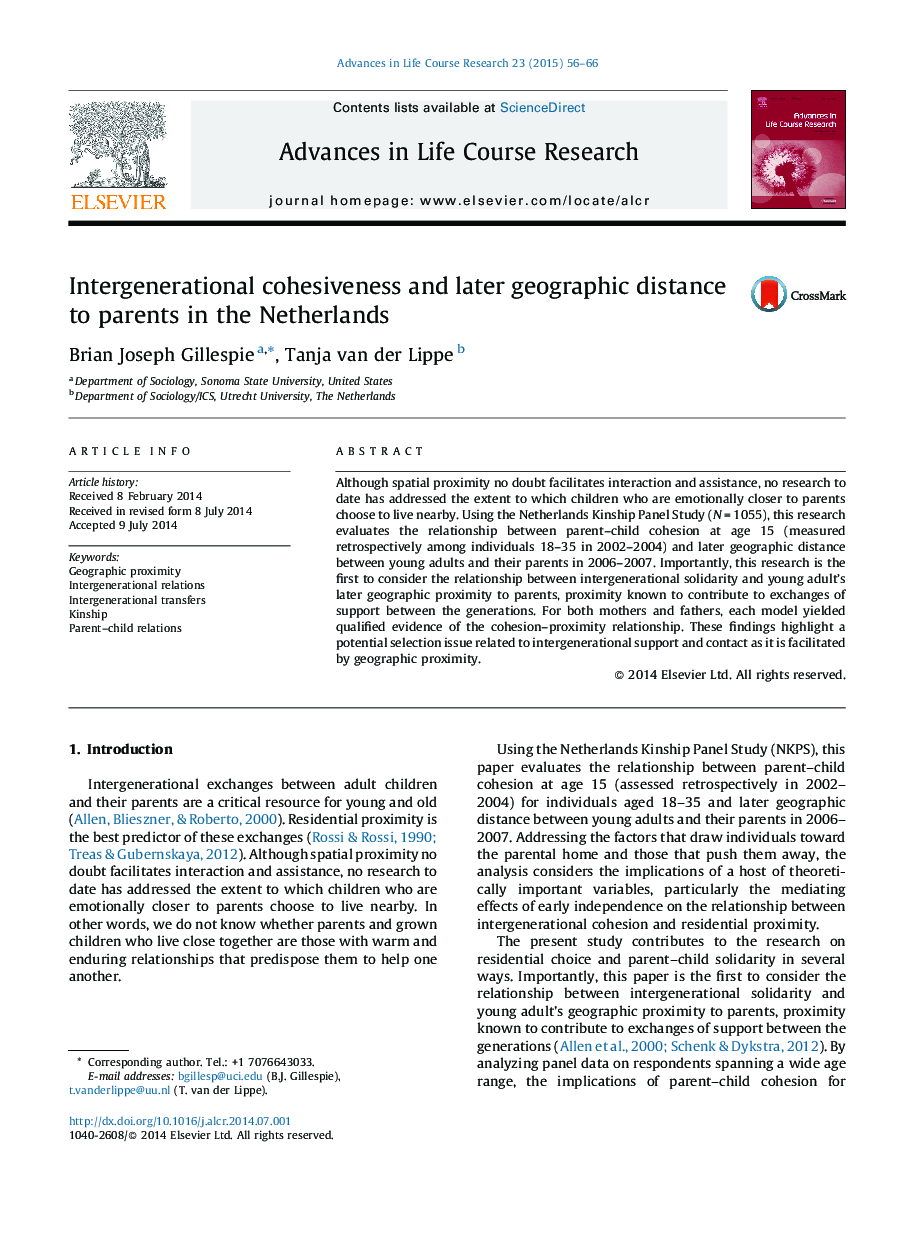| Article ID | Journal | Published Year | Pages | File Type |
|---|---|---|---|---|
| 312971 | Advances in Life Course Research | 2015 | 11 Pages |
Although spatial proximity no doubt facilitates interaction and assistance, no research to date has addressed the extent to which children who are emotionally closer to parents choose to live nearby. Using the Netherlands Kinship Panel Study (N = 1055), this research evaluates the relationship between parent–child cohesion at age 15 (measured retrospectively among individuals 18–35 in 2002–2004) and later geographic distance between young adults and their parents in 2006–2007. Importantly, this research is the first to consider the relationship between intergenerational solidarity and young adult's later geographic proximity to parents, proximity known to contribute to exchanges of support between the generations. For both mothers and fathers, each model yielded qualified evidence of the cohesion–proximity relationship. These findings highlight a potential selection issue related to intergenerational support and contact as it is facilitated by geographic proximity.
